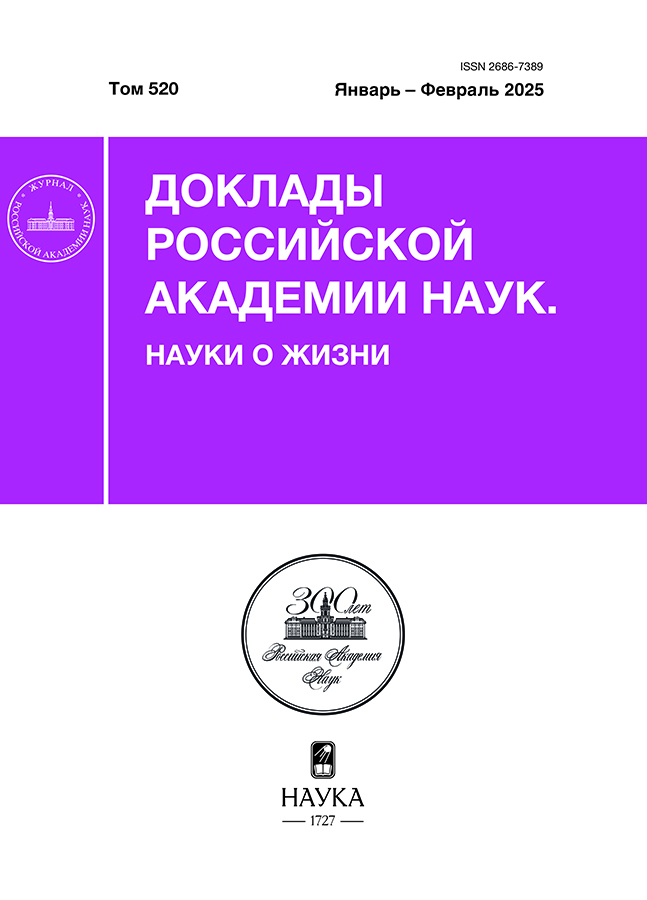Identification in silico of antimicrobial sequences of rainbow trout brain proteins in the context of integrated in the context of complex recycling of aquaculture wastes
- Autores: Kochneva А.А.1, Kuritsin A.Е.1, Murzina S.A.1
-
Afiliações:
- Karelian Research Centre of the Russian Academy of Sciences
- Edição: Volume 520, Nº 1 (2025)
- Páginas: 50-56
- Seção: Articles
- URL: https://vestnik.nvsu.ru/2686-7389/article/view/682034
- DOI: https://doi.org/10.31857/S2686738925010099
- EDN: https://elibrary.ru/tcqnnm
- ID: 682034
Citar
Texto integral
Resumo
Aquaculture is one of the main suppliers of fishery products and maintain its sustainable growth in the world, exceeding industrial fishing. At the same time, the problem of integrated processing of aquaculture by-products is on the environmental and production agenda. Fish processing by-products, which remains after obtaining the target product (fillet, offal, etc.), can be a “supplier” of valuable biological components. In particular, fish express antimicrobial peptides that exhibit broad-spectrum antimicrobial activity. In this study, we performed the first exploratory analysis of rainbow trout Oncorhynchus mykiss brain proteins to identify theoretical antimicrobial patterns. More than half of the identified proteins were predicted to have antimicrobial regions. These proteins included histones, vitellogenin, collagen and others. The obtained results may prove to be of interest in the context of drug development based on peptides against various pathogens, which is a relevant direction against the backdrop of increasing antibiotic resistance of pathogenic microorganisms.
Palavras-chave
Texto integral
Sobre autores
А. Kochneva
Karelian Research Centre of the Russian Academy of Sciences
Autor responsável pela correspondência
Email: kochnevaalbina@gmail.com
Institute of Biology
Rússia, PetrozavodskA. Kuritsin
Karelian Research Centre of the Russian Academy of Sciences
Email: kochnevaalbina@gmail.com
Institute of Biology
Rússia, PetrozavodskS. Murzina
Karelian Research Centre of the Russian Academy of Sciences
Email: kochnevaalbina@gmail.com
Institute of Biology
Rússia, PetrozavodskBibliografia
- Петушкова В.В. Аквакультуры – “Второй хлеб” Китая // Экономические и социальные проблемы России. 2022. Т.2, №50. С.159–174.
- ФАО. Краткий обзор. Состояние мирового рыболовства и аквакультуры – 2024. “Голубая трансформация” в действии. Рим: FAO, 2024.
- Helmy Y.A., Taha-Abdelaziz K., Hawwas H.A.E.-H., et al. Antimicrobial Resistance and Recent Alternatives to Antibiotics for the Control of Bacterial Pathogens with an Emphasis on Foodborne Pathogens // Antibiotics. 2023; Vol. 12. P. 274.
- Uddin T.M., Chakraborty A.J., Khusro A., et al. Antibiotic resistance in microbes: History, mechanisms, therapeutic strategies and future prospects // J Infect Public Health. 2021. Vol. 14, N12. P. 1750–1766.
- Masso-Silva J.A., Diamond G. Antimicrobial peptides from fish // Pharmaceuticals (Basel). 2014. Vol. 7, N3. P. 265–310.
- Walker J.M. The bicinchoninic acid (BCA) assay for protein quantitation // Methods Mol Biol. 1994. Vol. 32. P. 5–8. doi: 10.1385/0-89603-268-X:5.
- S-Trap™ micro spin column digestion protocol, ProtiFi, https://files.protifi.com/protocols/s-trap-micro-long-4-7.pdf, дата обращения 08.10.2024
- HaileMariam M., Eguez R. V., Singh H., et al. S-trap, an ultrafast sample-preparation approach for shotgun proteomics // J. Proteome Res. 2018. Vol. 17, N9. P. 2917–2924.
- Kochneva A., Efremov D., Murzina S.A. Proteins journey—from marine to freshwater ecosystem: blood plasma proteomic profiles of pink salmon Oncorhynchus gorbuscha Walbaum, 1792 during spawning migration // Front. Physiol. 2023. Vol. 14, P. 1216119.
- Tyanova S., Temu T., Cox J. The MaxQuant computational platform for mass spectrometry-based shotgun proteomics // Nat Protoc. 2016. Vol. 11. P. 2301–2319.
- Torrent M., Di Tommaso P., Pulido D., et al. AMPA: an automated web server for prediction of protein antimicrobial regions // Bioinformatics. 2012. Vol. 28, N1. P. 130–1.
- Torrent M., Nogués V.M., Boix E. A theoretical approach to spot active regions in antimicrobial proteins // BMC Bioinformatics. 2009. Vol. 10, N 373.
- Fernandes J.M., Kemp G.D., Molle M.G., et al. Anti-microbial properties of histone H2A from skin secretions of rainbow trout, Oncorhynchus mykiss // Biochem J. 2002. Vol. 368, NPt 2. P. 611–20.
- Fernandes J.M., Molle G., Kemp G.D., et al. Isolation and characterisation of oncorhyncin II, a histone H1-derived antimicrobial peptide from skin secretions of rainbow trout, Oncorhynchus mykiss // Dev Comp Immunol. 2004. Vol. 28, N2. P. 127–38.
- Fu B., Lin H., Ramesh Pavase T., et al. Extraction, Identification, Modification, and Antibacterial Activity of Histone from Immature Testis of Atlantic salmon // Mar Drugs. 2020. Vol. 18, N3, P. 133.
- Liu Q.H., Zhang S.C., Li Z.J., et al. Characterization of a pattern recognition molecule vitellogenin from carp (Cyprinus carpio) // Immunobiology. 2009. Vol. 214, N4. P. 257–67.
- Puthia M., Marzinek J.K., Petruk G., et al. Antibacterial and Anti-Inflammatory Effects of Apolipoprotein E // Biomedicines. 2022. Vol. 10, N6. P. 1430.
- Jafari H., Lista A., Siekapen M.M., et al. Fish Collagen: Extraction, Characterization, and Applications for Biomaterials Engineering // Polymers (Basel). 2020. Vol. 12, N10. P. 2230.
- Wei X., Wu Z., Zhang T., et al. Functional characterization of complement factor H in host defense against bacterial pathogen in Nile tilapia (Oreochromis niloticus) // Fish Shellfish Immunol. 2022. Vol. 129. P. 114–126.
Arquivos suplementares










